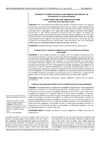Identificador persistente para citar o vincular este elemento:
https://accedacris.ulpgc.es/jspui/handle/10553/20763
| Campo DC | Valor | idioma |
|---|---|---|
| dc.contributor.author | Ponseti, F. Javier | en_US |
| dc.contributor.author | Sese, Albert | en_US |
| dc.contributor.author | García-Mas, Alexandre | en_US |
| dc.date.accessioned | 2017-03-03T03:31:57Z | |
| dc.date.accessioned | 2018-03-16T09:13:58Z | - |
| dc.date.available | 2017-03-03T03:31:57Z | |
| dc.date.available | 2018-03-16T09:13:58Z | - |
| dc.date.issued | 2016 | en_US |
| dc.identifier.issn | 1886-8576 | en_US |
| dc.identifier.uri | https://accedacris.ulpgc.es/handle/10553/20763 | - |
| dc.description.abstract | This study examines the relationship between competitive anxiety (in its cognitive and somatic components) and managerial behaviors, pressure, support, understanding, and the active involvement of parents in their children’s sports activities. Thirty-seven competitive young swimmers with a mean age of 12.22 years were studied based on records of their athletic performance in two official competitions during the 2012-2013 season. To analyze the psychological variables, the athletes were administered the Spanish-adapted version of the Sport Anxiety Scale (SAS-2) and the Parental Involvement in Sport Questionnaire (PISQ), with the effect size analyzed in terms of gender and the performance of the swimmers. The results show the influence of competitive anxiety on performance, mostly centered in the worry, and gender differences, but no significant relation to parental influence was found. | en_US |
| dc.description.abstract | En este estudio analizamos la relación entre la ansiedad competitiva (en sus componentes cognitivos y somáticos) y los comportamientos de gestión, la presión, el apoyo, la comprensión y la participación activa de los padres en las actividades deportivas de sus hijos. Treinta y siete jóvenes nadadores de competición, con una edad media de 12.22 años fueron estudiados utilizando los registros de su rendimiento deportivo en dos competiciones oficiales durante la temporada 2012-2013. Para analizar las variables psicológicas a los atletas se les administró la versión española adaptada de la Escala de Ansiedad Deporte (SAS-2) y la participación de los padres en el Deporte Cuestionario (PISQ), el tamaño del efecto se analiza en términos de género y el rendimiento de los nadadores. Los resultados muestran la influencia de la ansiedad competitiva, centrada en la preocupación por el rendimiento; y diferencias de género, pero no se encontró ninguna relación significativa a la influencia de los padres. | en_US |
| dc.format | application/pdf | es |
| dc.language | eng | en_US |
| dc.relation.ispartof | Revista Iberoamericana de Psicologia del Ejercicio y el Deporte | en_US |
| dc.source | Revista Iberoamericana de Psicología del Ejercicio y el Deporte [ISSN 1886-8576], v. 11 (2), p. 229-237 | en_US |
| dc.subject | 61 Psicología | en_US |
| dc.subject | 241106 Fisiología del ejercicio | en_US |
| dc.subject.other | Competitive anxiety | en_US |
| dc.subject.other | Young swimmers | en_US |
| dc.subject.other | Parental influence | en_US |
| dc.subject.other | Performance | en_US |
| dc.title | The impact of competitive anxiety and parental influence on the performance of young swimmers. | en_US |
| dc.type | info:eu-repo/semantics/article | en_US |
| dc.type | Article | en_US |
| dc.compliance.driver | 1 | es |
| dc.identifier.absysnet | 537108 | es |
| dc.identifier.crisid | -;-;- | |
| dc.investigacion | Artes y Humanidades | en_US |
| dc.rights.accessrights | info:eu-repo/semantics/openAccess | es |
| dc.type2 | Artículo | en_US |
| dc.identifier.ulpgc | Sí | es |
| dc.description.sjr | 0,382 | |
| dc.description.sjrq | Q2 | |
| dc.description.sellofecyt | Sello FECYT | |
| dc.description.esci | ESCI | |
| dc.description.dialnetimpact | 1,0 | |
| dc.description.dialnetq | Q1 | |
| dc.description.dialnetd | D1 | |
| dc.description.erihplus | ERIH PLUS | |
| item.grantfulltext | open | - |
| item.fulltext | Con texto completo | - |
| Colección: | Rev. Iberoam. psicol. ejerc. deporte. 2016. v.11, n.2 Artículos | |
Visitas
194
actualizado el 31-may-2025
Descargas
97
actualizado el 31-may-2025
Google ScholarTM
Verifica
Comparte
Exporta metadatos
Los elementos en ULPGC accedaCRIS están protegidos por derechos de autor con todos los derechos reservados, a menos que se indique lo contrario.
